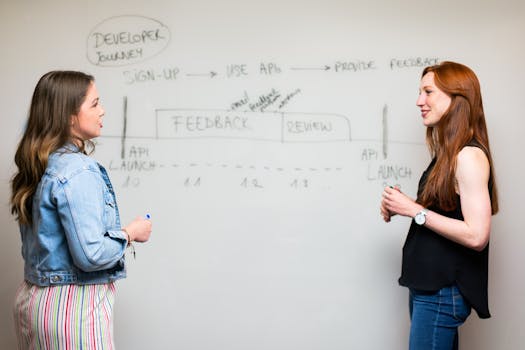Developing decision-making skills is essential for navigating life’s complexities. Individuals often face various choices that impact personal, professional, and social spheres. Strengthening these skills can lead to clearer outcomes and increased confidence.
Understanding how to approach decisions is crucial in every aspect of life. It’s not merely about making a choice but also involves analyzing potential outcomes, risks, and benefits. Improving these skills fosters better problem-solving abilities.
This article explores different strategies to enhance your decision-making capabilities. From understanding decision-making theories to practicing mindfulness, each section builds on the last to create a comprehensive guide.
Understanding Decision-Making Processes
To develop effective decision-making skills, you first need a firm understanding of the decision-making process. This includes identifying the problem, gathering information, and evaluating alternatives. The steps are fundamental.
Different decision-making models exist, each suited for various situations. For instance, the rational model is systematic but may not be flexible. In contrast, intuitive decision-making relies on gut feelings.
Recognizing when to use specific models can improve your outcomes. Sometimes, a combination of both rational analysis and intuition is most effective, leading to well-rounded conclusions.
Consider how emotions play a role in decisions. Emotional intelligence helps in navigating personal biases while making choices. Understanding one’s feelings can prevent clouded judgment.
Finally, reflect on past decisions to identify patterns. This reflection enables a deeper understanding of your decision-making style and highlights areas for improvement.
The Importance of Information Gathering
Information gathering is essential for effective decision-making. Without adequate information, making informed choices becomes nearly impossible, leading to poor outcomes. Gathering the right data can minimize risks.
Utilize various sources for information such as books, articles, experts, or even peers. Diverse perspectives can provide valuable insights and broaden your understanding of an issue.
Evaluate the credibility of your sources. Ensure that the information is reliable, current, and relevant to the decision at hand. Misinformation can skew your decision-making process significantly.
Learning to ask the right questions also enhances your information-gathering skills. Questions should be focused, clear, and specific, aiming to uncover the necessary details for your decision.
Employ online resources and tools that aggregate data, such as Google Scholar or industry-specific databases. Such tools can save time and enhance the quality of your information.
Analyzing Alternatives
After gathering information, the next step is evaluating the alternatives available. This involves weighing the pros and cons of each option to determine the best course of action. A systematic approach works best.
Creating a decision matrix can help visualize the alternatives. List options and criteria, and score each alternative based on how well it meets the desired outcomes.
Consider potential outcomes for each alternative. Understanding the short-term and long-term impacts will provide additional clarity, ensuring that decisions align with your overarching goals.
Involve others in the evaluation process. Discussing options with trusted colleagues or friends can reveal new insights and promote shared perspectives, which can be invaluable in decision-making.
Finally, don’t hesitate to discard options that don’t meet your essential criteria quickly. This filtering process narrows down alternatives, making your final decision easier and more focused.
Practicing Mindfulness in Decision-Making
Mindfulness can significantly enhance decision-making skills. By staying present and aware, it allows individuals to analyze choices without being overwhelmed by stress or anxiety. This practice facilitates clear thinking.
Incorporate mindfulness exercises into your routine. Techniques such as meditation, deep breathing, or even short breaks can help clear your mind, increasing focus and enhancing clarity during the decision-making process.
Maintain a reflective journal to document thoughts and feelings. This practice can reveal underlying patterns and stressors that influence your decisions and negatively impact your mental state.
Engaging in mindfulness fosters emotional regulation, allowing you to respond rather than react impulsively to situations. This approach leads to more deliberate and thoughtful decisions, improving overall outcomes.
Dedicate time to reflect after major decisions. This helps assess the decision-making process and gain insights for future choices, reinforcing the habit of mindful decision-making.
Learning from Mistakes
No one is perfect, and mistakes are part of the decision-making process. Learning from past errors can accelerate the development of decision-making skills. Each setback provides a valuable lesson.
After making a decision, assess the outcomes regularly. Was the result as expected? If not, analyze what went wrong and how the situation could be approached differently.
Embrace a growth mindset to view mistakes positively. Adopting this perspective encourages continuous improvement and resilience against future challenges, fostering more confident choices moving forward.
Share your learning experiences with others. Discussing mistakes can provide insights and foster a collaborative environment, where everyone can learn from each other’s experiences.
Finally, keep a record of successful and unsuccessful decisions. Over time, you will build a repository of knowledge that can guide future choices and foster confidence.
Seeking Feedback and Collaboration
Feedback is a powerful tool for enhancing decision-making skills. It provides external perspectives that can reinforce or challenge your thought processes, ultimately leading to better outcomes.
Seek advice from mentors, colleagues, or friends before making significant decisions. Their insights may highlight potential pitfalls or new opportunities you might not have considered.
Participate in group discussions to enhance collective decision-making. Collaborative environments allow for diverse viewpoints, which can improve the quality of decisions and foster innovative solutions.
Regularly engage in conversations about decision-making processes within your team or organization. Establishing open channels for communication encourages learning and reinforces best practices.
Finally, take time to evaluate the feedback you receive. Analyze how it aligns with your understanding and use it to refine your decision-making approaches continuously.
Conclusion: Building Stronger Decision-Making Skills
Developing decision-making skills is a vital aspect of personal and professional growth. By understanding decision-making processes, gathering information, and learning from mistakes, you can enhance your abilities.
Incorporating mindfulness, analyzing alternatives, and seeking feedback fosters a comprehensive approach to decision-making. Over time, these practices build confidence and clarity, enabling better outcomes.
Remember that decision-making is a skill that improves with practice. Stay committed to refining your techniques, and you’ll find yourself making well-informed choices that positively impact your life.
